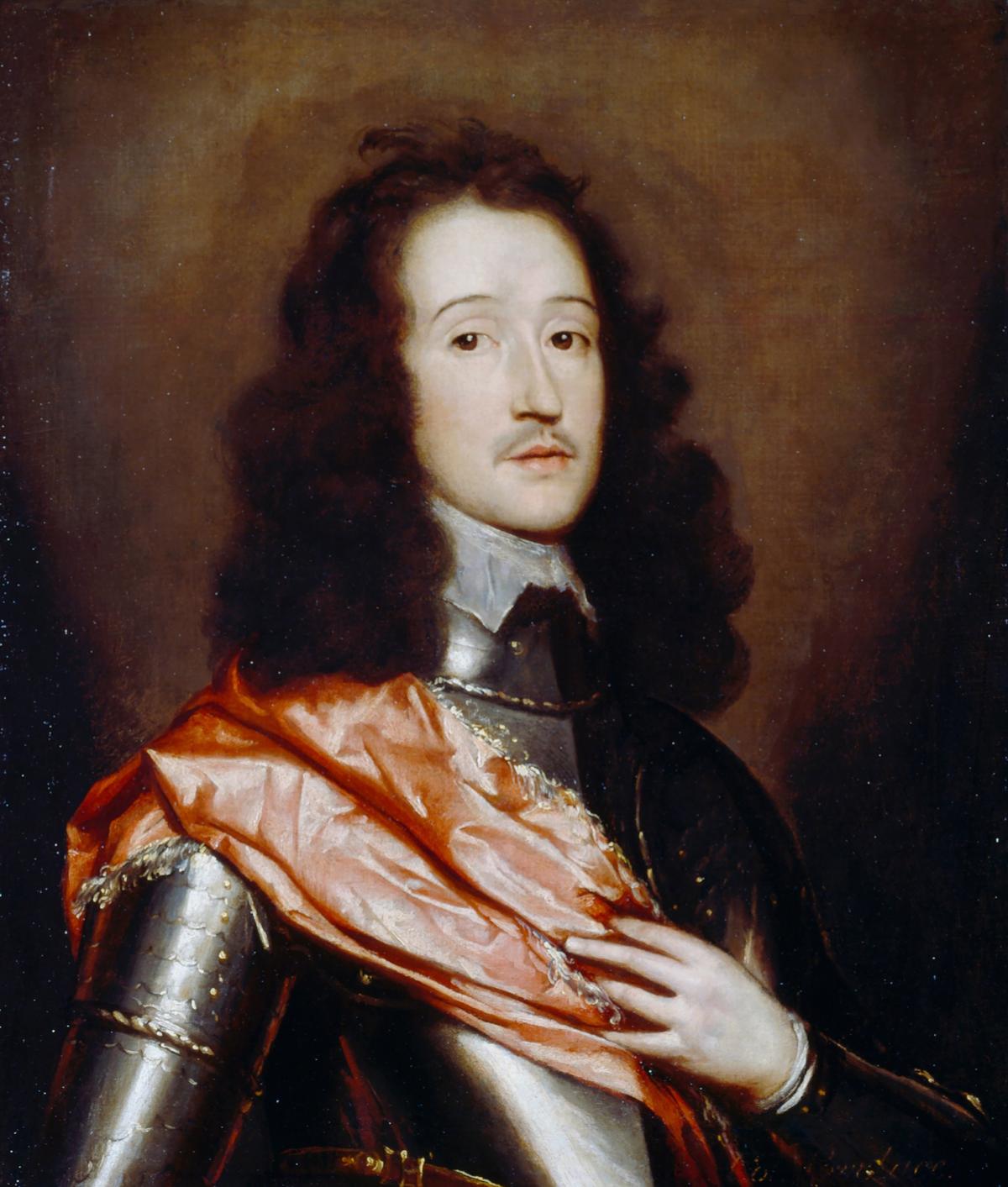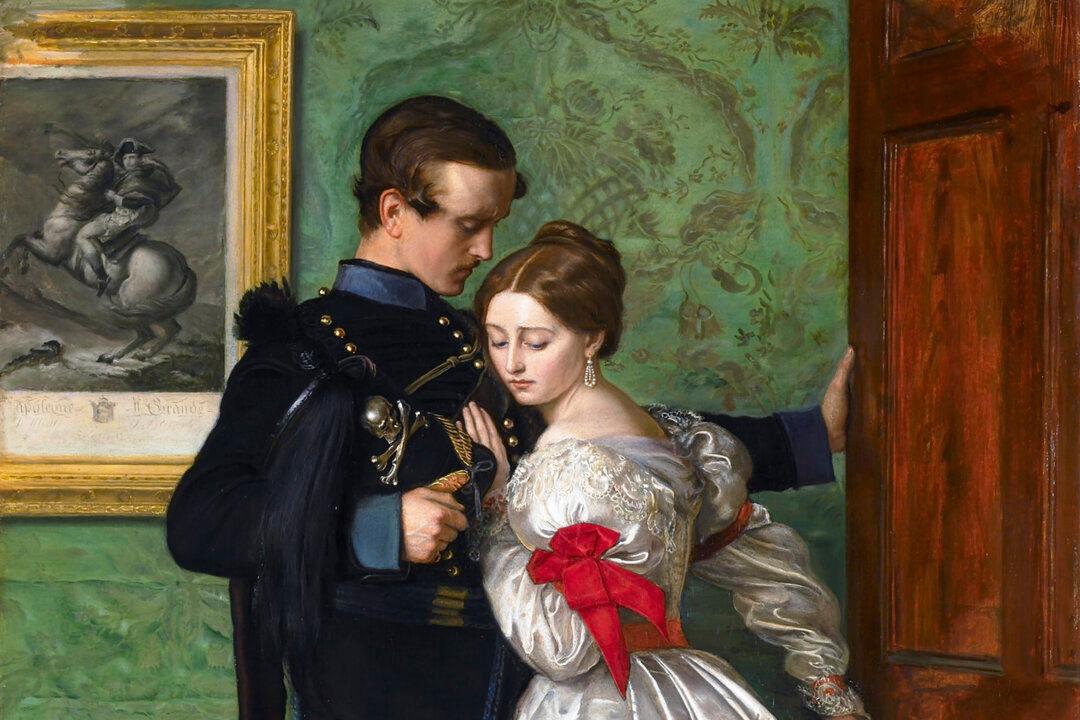‘To Lucasta, Going to the Wars’
Tell me not (Sweet) I am unkind, That from the nunnery Of thy chaste breast and quiet mind To war and arms I fly. True, a new mistress now I chase The first foe in the field; And with a stronger faith embrace A sword, a horse, a shield. Yet this inconstancy is such As you too shall adore; I could not love thee (Dear) so much, Lov’d I not Honour more.
With these stirring words, 17th-century English poet Richard Lovelace celebrates all those who go to war for love of country and honor, even when it involves painful separations. In this poem, the speaker seeks to console his beloved as he rides off to battle, explaining to her that his love of honor and duty does not lessen his love for her—on the contrary, these various loves complement rather than compete with one another. It is his devotion to honor that enables him to love his lady so profoundly.
A portrait of Richard Lovelace, circa 1645, by William Dobson. Oil on canvas. Dulwich Picture Gallery, London. Public Domain






